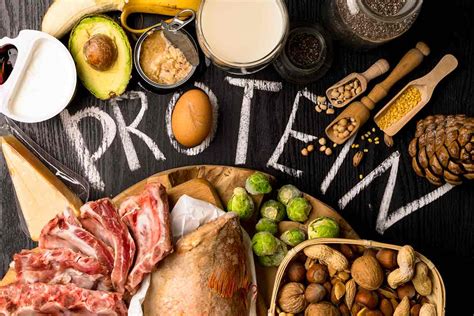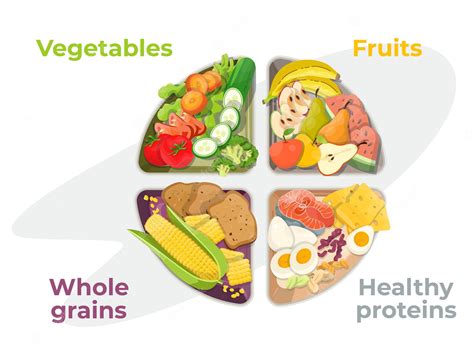What specific daily protein intake optimizes men’s muscle growth & recovery for peak performance?

The Cornerstone of Strength: Understanding Protein’s Role
For men striving for peak physical performance, robust muscle growth, and efficient recovery, protein is not just another nutrient; it’s the fundamental building block. Every strenuous workout session causes micro-tears in muscle fibers. Protein, rich in amino acids, steps in to repair these tears, leading to stronger, larger muscles—a process known as muscle protein synthesis (MPS). But the question isn’t whether protein is important, but rather, how much and what kind optimizes these vital processes?

Defining Optimal Protein Intake: More Than Just a Number
While general dietary guidelines exist, for men actively engaged in strength training or high-intensity exercise, these recommendations often fall short. Optimal protein intake for muscle growth and recovery significantly exceeds the standard recommended daily allowance (RDA) of 0.8g per kilogram of body weight. Research consistently points to a higher range for active individuals.
The Gold Standard: 1.6 to 2.2 grams per kg of body weight
Most sports nutrition experts and scientific studies suggest that an intake of 1.6 to 2.2 grams of protein per kilogram of body weight (or approximately 0.7 to 1.0 grams per pound of body weight) per day is optimal for maximizing muscle protein synthesis in resistance-trained men. This range accounts for individual variations in training intensity, body composition, and specific goals.
- For Muscle Growth (Hypertrophy): Aim for the higher end of the spectrum, especially if you’re in a caloric surplus.
- For Muscle Preservation (Cutting/Caloric Deficit): A higher protein intake (up to 2.2-2.7g/kg or 1.0-1.2g/lb) is often recommended to prevent muscle loss while in a deficit.
- For Endurance Athletes: While often associated with strength, endurance athletes also benefit from this range to aid recovery and repair.

Factors Influencing Your Specific Protein Needs
The “one-size-fits-all” approach rarely works in nutrition. Several factors can modulate your ideal protein intake:
- Training Intensity and Volume: The harder and more frequently you train, the greater your protein demands for repair and adaptation.
- Body Composition: Protein needs are often better calculated based on lean body mass (LBM) rather than total body weight, especially for individuals with higher body fat percentages.
- Caloric Intake: If you are in a caloric deficit, higher protein intake is crucial to preserve muscle mass. In a surplus, protein still builds, but you might not need to push it as high.
- Age: Older men (over 50) may require slightly higher protein intake (e.g., 1.2-1.5g/kg or even higher) to counteract age-related muscle loss (sarcopenia) and optimize MPS.
- Specific Goals: Are you bulking, cutting, or maintaining? Your goal will subtly shift your optimal range.

Timing and Distribution: Maximizing Absorption and Synthesis
It’s not just about the total amount; when and how you consume your protein also plays a significant role. Spreading your protein intake evenly throughout the day, rather than consuming it all in one or two large meals, has been shown to be more effective for stimulating MPS.
- Even Distribution: Aim for 20-40 grams of high-quality protein every 3-4 hours across 4-6 meals/snacks.
- Pre- and Post-Workout: Consuming protein before and/or after training sessions provides a steady supply of amino acids for muscle repair and growth. While the “anabolic window” isn’t as narrow as once believed, having protein around your workout is still beneficial.
- Before Bed: A slow-digesting protein like casein before sleep can provide a sustained release of amino acids, supporting overnight recovery and reducing muscle protein breakdown.

The Importance of High-Quality Protein Sources
Not all protein is created equal. Prioritizing high-quality, complete protein sources ensures you’re getting all nine essential amino acids (EAAs) that your body cannot produce on its own. Leucine, in particular, is a key amino acid that triggers MPS.
Excellent Protein Sources Include:
- Animal Sources: Lean meats (chicken, beef, turkey), fish (salmon, tuna), eggs, dairy products (milk, Greek yogurt, cottage cheese).
- Plant Sources (often require combination for complete profile): Legumes, lentils, quinoa, tofu, tempeh, edamame, nuts, seeds, and plant-based protein powders (pea, rice, soy).
Beyond Protein: A Holistic Approach to Peak Performance
While protein is paramount, it’s part of a larger nutritional and lifestyle puzzle. To truly optimize muscle growth, recovery, and peak performance, consider:
- Adequate Caloric Intake: You need enough energy (calories) to fuel workouts and support muscle growth. Without it, even high protein won’t be as effective.
- Carbohydrates: Essential for energy, glycogen replenishment, and preventing protein from being used for fuel instead of repair.
- Healthy Fats: Crucial for hormone production and overall health.
- Hydration: Water is vital for all bodily functions, including nutrient transport and waste removal.
- Sleep: Quality sleep is when most recovery and growth occur. Aim for 7-9 hours per night.
- Consistent Training: A progressive and well-structured training program is the primary stimulus for muscle adaptation.

Conclusion: Fueling Your Potential
For men dedicated to optimizing muscle growth, recovery, and achieving peak performance, a daily protein intake of 1.6 to 2.2 grams per kilogram of body weight serves as an excellent evidence-based target. Focus on distributing this intake across multiple meals from high-quality, complete protein sources, and remember that protein works best when integrated into a holistic approach that includes adequate calories, carbohydrates, healthy fats, sufficient hydration, quality sleep, and consistent, challenging training. By meticulously managing your protein intake, you provide your body with the essential fuel to build, repair, and excel.








